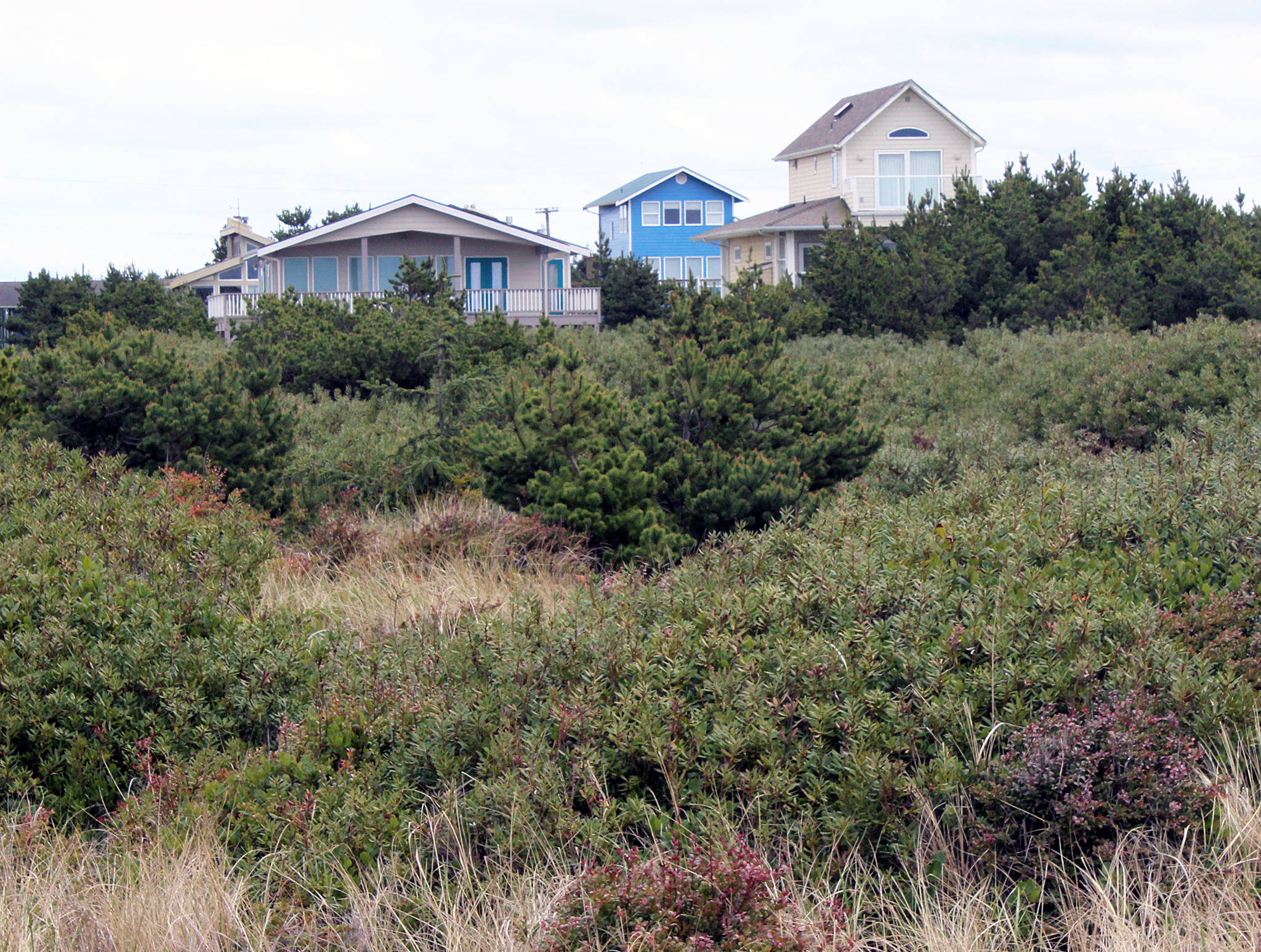Two weeks after Ocean Shores had to re-establish and restore its Ocean Dunes Protection Act, debate questions remain about an amendment to the act that would allow for so-called “dunes grooming” to control brush and protect against the threat of fires in the dunes.
In a proposal April 8, the City Council was asked to consider amending the dunes act to “make it clear the city may groom the dunes as needed for protection against wild fires and to increase the general attractiveness of the dunes as well as increase ocean views.”
Another proposed change would be to “make it clear that the proposed High dune Trail over five feet wide will accommodate bicycles,” with planning and funding for the new trail system underway.
The council on March 25 had to restore the Dunes Protection Act after it was mistakenly taken out of the city’s recently adopted Shoreline Master Plan update, temporarily leaving the dunes with virtually no regulations on overnight camping, vehicles, commercial business or other previously prevented activities. The proposal for the amendment, however, was delayed for the following council meeting to give members and the public an opportunity to review it.
“There is more property in our dunes than there is in any city-owned facilities. The dunes are huge, and the impact of operating in those dunes is every bit as high,” said resident Lillian Broadbent.
Broadbent said she was a big supporter of the trail project and also supported “necessary fire breaks” protecting businesses and homes from potential dunes wildfires.
“If we need a fire break behind the hotels, I think we should proceed with that,” she said. “But I would like to see all reference to dunes grooming taken out of this. … We do not have sufficient staff to manage the current properties. We don’t have the staff to manage dunes grooming at this point in time.”
Alex Suarez asked what the impact of trimming brush in the dunes would have on erosion, a problem of particular concern toward the jetty: “What will be the effect on the ecology? I don’t know what the answer is, but I hope you are considering it.”
Marlene Penry also was concerned about the dunes-grooming language “being out of compliance with environmental regulations.”
“Completely aside from this Protection Act, the dunes ecosystem is already protected,” Penry said, with existing regulations on habitat, wetlands and scrub brush. Any dunes grooming has to be done in accordance with state and federal regulations, she noted.
“We have to stop banging our heads against the wall. We have to stop trying to find new ways to circumvent our environmental laws. We have to take the right steps so we can get out there and do something,” Penry said.
Council member Jon Martin acknowledged he was confused about the issue of clearing brush behind the hotels and whether that was part of the proposed amendment. Mayor Crystal Dingler replied that there is an issue with associated wetlands in the dunes behind many of the hotels as part of the city’s Shoreline Master Plan.
“That’s something kind of special that we have to work on in a certain way,” Dingler said, noting the wetlands have buffers around them with “very strict rules about what you can do there.”
Council member Susan Conniry also had several questions about the proposal and requested the state Department of Ecology review it before taking action.
Dingler said she would invite a representative from Ecology to come and “answer some of the questions that we are not quite able to answer ourselves.”
Martin suggested the city also would have to better define what sort of bicycles would be allowed, such as the popular electric bikes rented locally, or whether scooters would be allowed on the dunes trail.
“Those are things you guys are going to have to decide,” the mayor told the council.
Conniry moved to send the issue to the Planning Commission, and the council vote was unanimous.
“It’s an opportunity now for us to think about what is it we want to do in the future” about the dunes, Dingler said. The plan is to update the city’s codes “to make sure we have the right and sometimes the obligation to do certain things in maintaining the dunes and protecting the dunes.”
Scotch Broom project
Dingler also briefed the Council on a new project to help eradicate the invasive non-native Scotch Broom that often grows unabated in the dunes. On April 17-18, the project, called Pulling Together for Restoration, will be aided by the 10,000 Years Institute, an international scientific research group.
“These folks, about 10 or 12 of them, are going to come down here and spend a few days to teach us how to eradicate Scotch Broom in a semi-permanent manner,” Dingler said. “Keep in mind that Scotch Broom is tenacious.” The Shilo Inn is providing accommodations.



